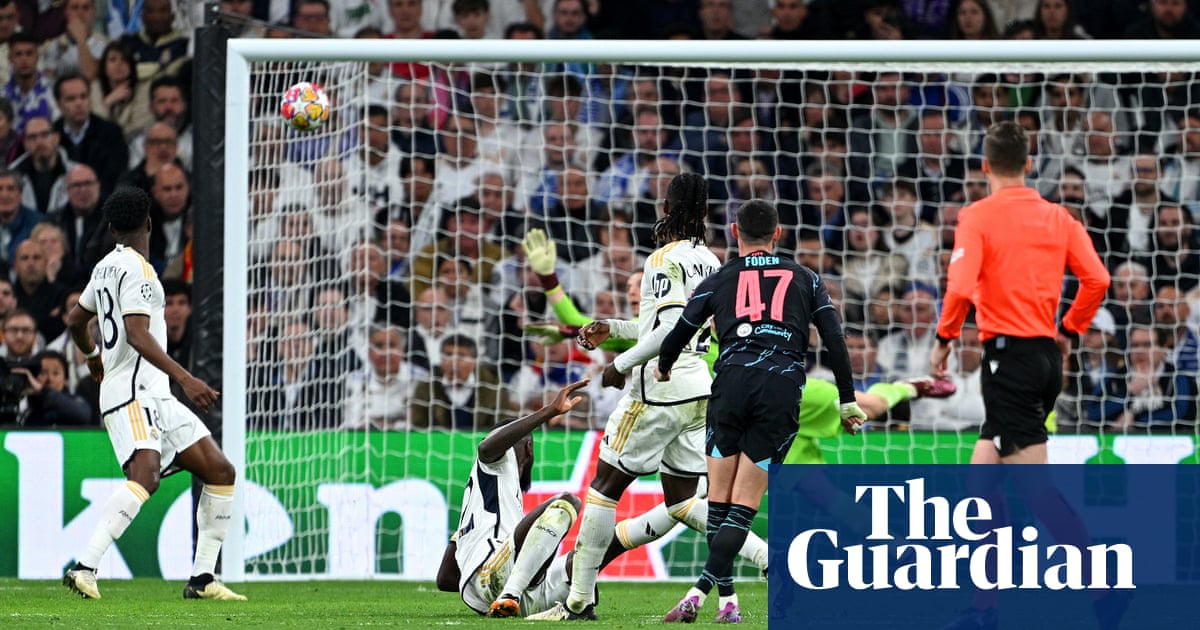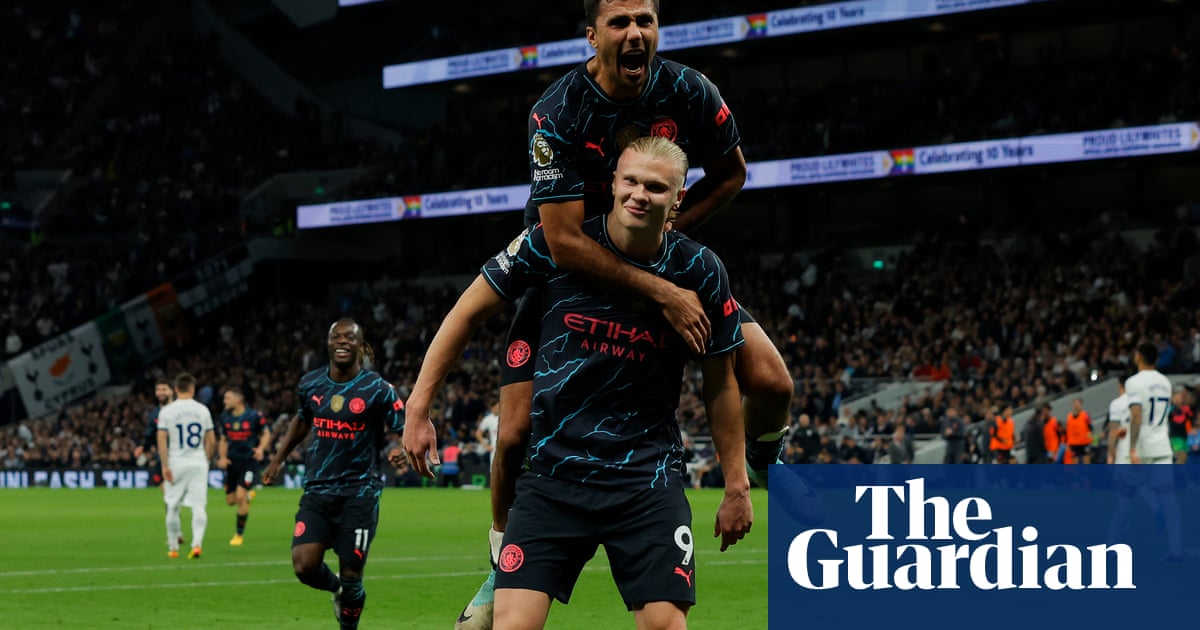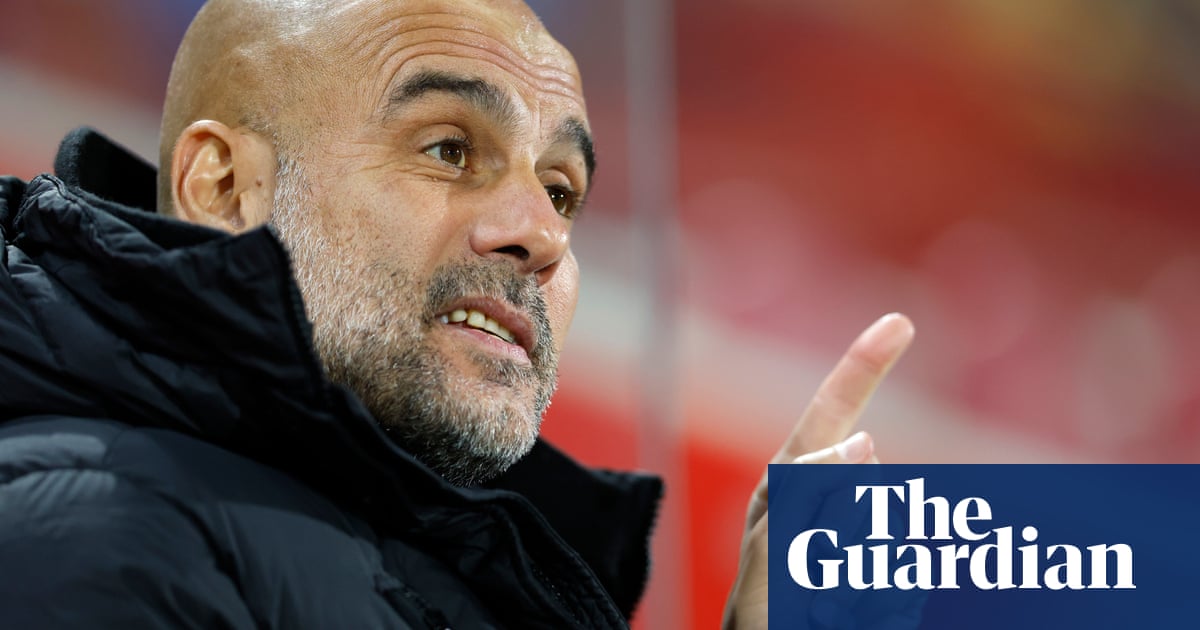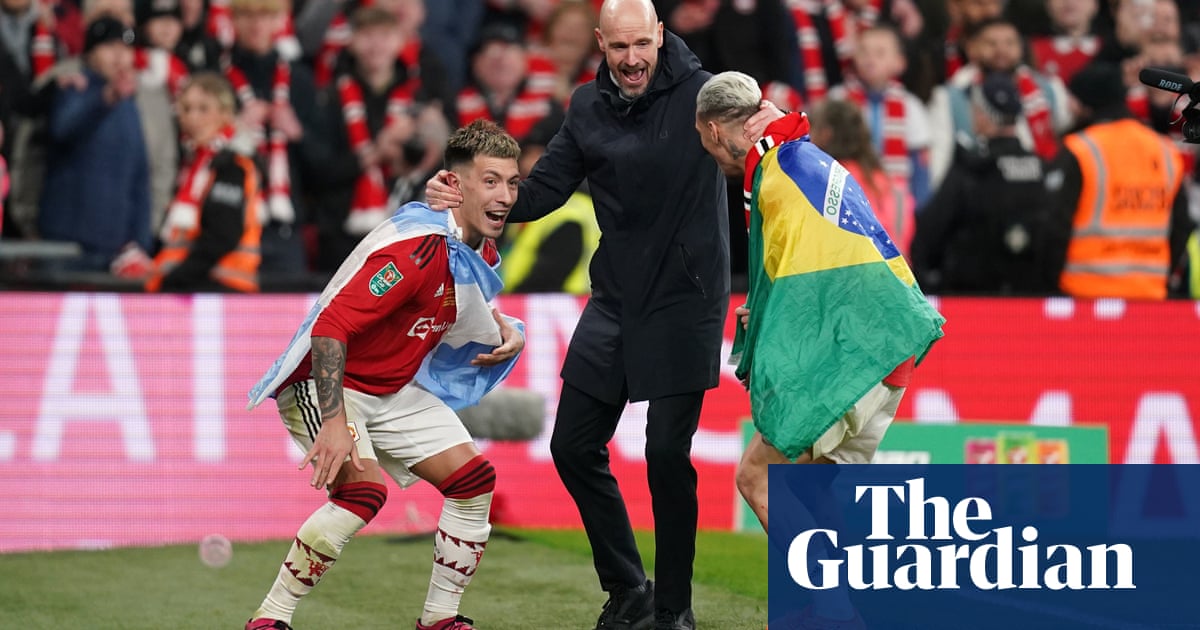
Eight weeks, 12 games and nine defeats into Manchester City’s descent into the footballing upside down, Pep Guardiola has at least identified the problem.
“We haven’t scored the goals we scored before, and we have conceded the goals we didn’t concede,” Guardiola told the BBC cameras after the defeat at Villa Park on Saturday, speaking in that now-familiar watery, rambling drawl, the voice of a man being encouraged by paramedics to talk about defensive injuries and midfield duels in order to keep himself awake until the ambulance arrives.
So, there it is then. Score more goals. Concede fewer. Win rather than lose. This is the Pep’s razor explanation for a period during which the team that would previously drain the emotional life out of opponents have become not just beatable but zombified, sclerotic and even oddly disturbing, meandering possession-based football as an expression of the death of love, life, hope.
So. How did that happen exactly then? And are we allowed at any stage to blame the manager himself for any of this? As City prepare for the visit of Everton on Boxing Day there are two things worth saying about the run to this point.
Most startling of all is the sheer scale of that drop-off. This is arguably the most profound internal collapse of any champion team in the modern age.
Almost exactly a year ago to the day, a team featuring 10 of the players who were on the pitch at Villa Park defeated Fluminense 4-0 in Jeddah. In that moment City unified the belts, the first club to be simultaneous winners of the Champions League, Premier League, Club World Cup, FA Cup and Uefa Super Cup. The peak had been scaled. There were no other peaks. This was it. All of these things under the sun I will give to you.
There was an understandable triumphalism around this achievement. “The accomplishments on the pitch have been the byproduct of a bewitching and mesmerising style of play,” City’s website concluded, which was perhaps a little overripe in the pared-back Haaland-centred age, but seems doubly striking watching the current XI amble about like unhappy robots.
“The players are still hungry and motivated,” Guardiola assured the world, and for quite a long time this seemed entirely correct. City didn’t lose a game, penalties aside, until the FA Cup final in May. It was 14 matches into this season before they lost another one. At which point, enter: total congealment.
This is the second point about City’s step out over that coastal shelf. There is no obvious explanation for any of this. A team that were all aura, that carried their presence before them like a lance have become an anti-presence, stuffed shirts, straw men.
As ever the explanations tend to divide into the macro and micro view of history. Details will always decide a game. But we remain addicted to our sweeping narratives. So the more hard-headed analysis says: take the Ballon d’Or winner out of any team, chuck in one or two key defensive injuries, and there will of course be a drop-off.
City have dropped 24 points since Rodri’s injury, including the Arsenal game where it happened. This is the key position in any Guardiola team, an absence that affects every other part of the machine. Without that source of midfield control players all over the pitch are being asked to win duels, to chase and harry, to do things outside their key skill set.
Reinsert Rodri over that period and would we really be talking collapse, ghost ships, head scratches, the restyling of Guardiola as some kind of dying Jedi knight?












